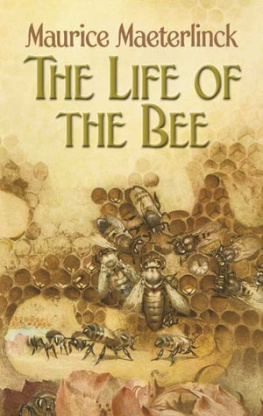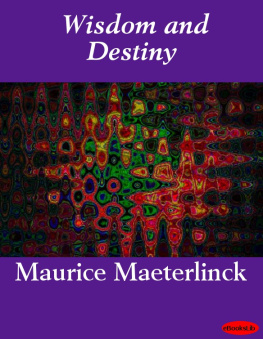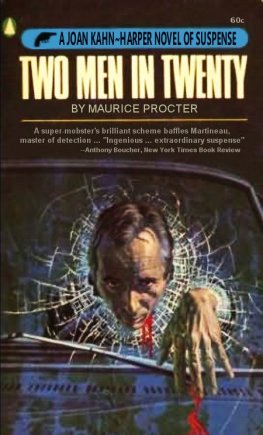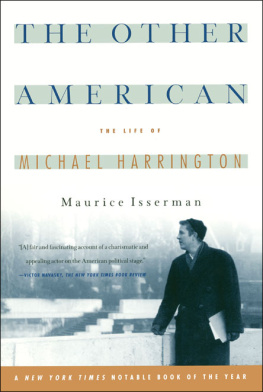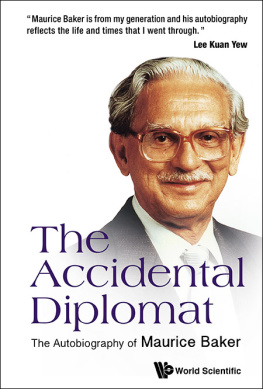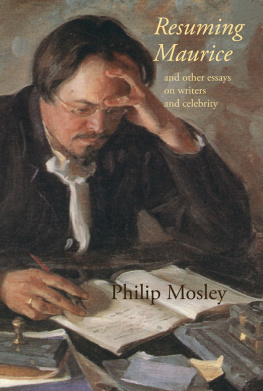Maurice Maeterlinck - The Life of the Bee
Here you can read online Maurice Maeterlinck - The Life of the Bee full text of the book (entire story) in english for free. Download pdf and epub, get meaning, cover and reviews about this ebook. year: 1901, genre: Romance novel. Description of the work, (preface) as well as reviews are available. Best literature library LitArk.com created for fans of good reading and offers a wide selection of genres:
Romance novel
Science fiction
Adventure
Detective
Science
History
Home and family
Prose
Art
Politics
Computer
Non-fiction
Religion
Business
Children
Humor
Choose a favorite category and find really read worthwhile books. Enjoy immersion in the world of imagination, feel the emotions of the characters or learn something new for yourself, make an fascinating discovery.
- Book:The Life of the Bee
- Author:
- Genre:
- Year:1901
- Rating:5 / 5
- Favourites:Add to favourites
- Your mark:
- 100
- 1
- 2
- 3
- 4
- 5
The Life of the Bee: summary, description and annotation
We offer to read an annotation, description, summary or preface (depends on what the author of the book "The Life of the Bee" wrote himself). If you haven't found the necessary information about the book — write in the comments, we will try to find it.
The Life of the Bee — read online for free the complete book (whole text) full work
Below is the text of the book, divided by pages. System saving the place of the last page read, allows you to conveniently read the book "The Life of the Bee" online for free, without having to search again every time where you left off. Put a bookmark, and you can go to the page where you finished reading at any time.
Font size:
Interval:
Bookmark:
Appendix
To give a complete bibliography of the bee were outside the scope of this book; we shall be satisfied, therefore, merely to indicate the more interesting works:
- The Historical Development of Apiarian Science:
(a) The ancient writers: Aristotle, "History of Animals" (Trans. Bart. St. Hilaire); T. Varro, "De Agricultura," L. III. xvi.; Pliny, "Hist. Nat.," L. xi.; Columella, "De Re Rustica;" Palladius, "De Re Rustica," L. I. xxxvii., etc.
(b) The moderns: Swammerdam, "Biblia Natur," 1737; Maraldi, "Observations sur les Abeilles," 1712; Raumur, "Mmoires pour servir l'Histoire des Insectes," 1740; Ch. Bonnet, OEuvres d'Histoire Naturelle," 1779-1783; A. G. Schirach, "Physikalische Untersuchung der bisher unbekannten aber nachher entdeckten Erzeugung der Bienenmutter," 1767; J. Hunter, "On Bees" (Philosophical Transactions, 1732); J. A. Janscha, "Hinterlassene Vollstndige Lehre von der Bienenzucht," 1773; Franois Huber, "Nouvelles Observations sur les Abeilles," 1794, etc.
- Practical Apiculture:
Dzierzon, "Theorie und Praxis des neuen Bienenfreundes;" Langstroth, "The Honeybee" (translated into French by Ch. Dadant: "L'Abeille et la Ruche," which corrects and completes the original); Georges de Layens and Bonnier, "Cours Complet d'Apiculture;" Frank Cheshire, "Bees and Bee-keeping" (vol. ii.-- Practical); Dr. E. Bevan, "The Honey-bee;" T. W. Cowan, "The British Bee-keeper's Guidebook;" A. Root, "The A B C of Bee-Culture;" Henry Allen, "The Bee-keeper's Handy-book;" L'Abb Collin, "Guide du Propritaire des Abeilles;" Ch. Dadant, "Petit Cours d'Apiculture Pratique;" Ed. Bertrand, "Conduite du Rucher;" Weber, "Manuel pratique d'Apiculture;" Hamet, "Cours Complet d'Apiculture;" De Bauvoys, "Guide de l'Apiculteur;" Pollmann, "Die Biene und ihre Zucht;" Jeker, Kramer, and Theiler, "Der Schweizerische Bienenvater;" S. Simmins, "A Modern Bee Farm;" F. W. Vogel, "Die Honigbiene und die Vermehrung der Bienvlker;" Baron A. Von Berlepsch, "Die Biene und ihre Frucht," etc.
- General Monographs:
F. Cheshire, "Bees and Bee-keeping" (vol. i.--Scientific); T. W. Cowan, "The Honey-bee;" J. Perez, "Les Abeilles;" Girard, "Manuel d'Apiculture" (Les Abeilles, Organes et Fonctions); Schuckard, "British Bees;" Kirby and Spence, "Introduction to Entomology;" Girdwoyn, "Anatomie et Physiologie de l'Abeille;" F. Cheshire, "Diagrams on the Anatomy of the Honeybee;" Gunderach, "Die Naturgeschichte der Honigbiene;" L. Buchner, "Geistesleben der Thiere;" 0. Btschli, "Zur Entwicklungsgeschichte der Biene;" J. D. Haviland, "The Social Instincts of Bees, their Origin and Natural Selection."
- Special Monographs (Organs, Functions, Undertakings, etc.):
F. Dujardin, "Mmoires sur le Systme nerveux des Insectes;" Dumas and Milne Edwards, "Sur la Production de Ia Cire des Abeilles;" E. Blanchard, "Recherches anatomiques sur le Systme nerveux des Insectes;" L. R. D. Brougham, "Observations, Demonstrations, and Experiences upon the Structure of the Cells of Bees;" P. Cameron, "On Parthenogenesis in the Hymenoptera" (Transactions Natural Society of Glasgow, 1888); Erichson, "De Fabrica et Usu Antennarum in Insectis;" B. T. Lowne, "On the Simple and Compound Eyes of Insects" (Philosophical Transactions, 1879); G. K. Waterhouse, "On the Formation of the Cells of Bees and Wasps;" Dr. C. T. E. von Siebold, "On a True Parthenogenesis in Moths and Bees;" F. Leydig, "Das Auge der Gliederthiere;" Pastor Schonfeld, "Bienen-Zeitung," 1854--1883; "Illustrierte Bienen-Zeitung," 1885--1890; Assmuss, "Die Parasiten der Honigbiene."
- Notes on Melliferous Hymenoptera:
E. Blanchard, "Metamorphoses, Moeurs et Instincts des Insectes;" Vid: "Histoire des Insectes;" Darwin, "Origin of Species;" Fabre, "Souvenirs Entomologiques" (3d series); Romanes, "Mental Evolution in Animals;" id., "Animal Intelligence;" Lepeletier et Fargeau, "Histoire Naturelle des Hymenopteres;" V. Mayet, "Mmoire sur les Moeurs et sur les Metamorphoses d'une Nouvelle Espce de la Famille des Vesicants" (Ann. Soc. Entom. de France, 1875); H. Mller, "Ein Beitrag zur Lebensgeschichte der Dasypoda Hirtipes;" E. Hoffer, "Biologische Beobachtungen an Hummeln und Schmarotzerhummeln;" Jesse, "Gleanings in Natural History;" Sir John Lubbock, "Ants, Bees, and Wasps;" id., "The Senses, Instincts, and Intelligence of Animals;" Walkenaer, "Les Haclites;" Westwood, "Introduction to the Study of Insects;" V. Rendu, "De l'Intelligence des Btes;" Espinas, "Animal Communities," etc.
IT IS NOT MY INTENTION to write a treatise on apiculture, or on practical bee-keeping. Excellent works of the kind abound in all civilized countries, and it were useless to attempt another. France has those of Dadant, Georges de Layens and Bonnier, Bertrand, Hamet, Weber, Clement, the Abb Collin, etc. English-speaking countries have Langstroth, Bevan, Cook, Cheshire, Cowan, Root, etc. Germany has Dzierzon, Van Berlespoch, Pollmann, Vogel, and many others.
Nor is this book to be a scientific monograph on Apis Mellifica, Ligustica, Fasciata, Dorsata, etc., or a collection of new observations and studies. I shall say scarcely anything that those will not know who are somewhat familiar with bees. The notes and experiments I have made during my twenty years of bee-keeping I shall reserve for a more technical work; for their interest is necessarily of a special and limited nature, and I am anxious not to over-burden this essay. I wish to speak of the bees very simply, as one speaks of a subject one knows and loves to those who know it not. I do not intend to adorn the truth, or merit the just reproach Raumur addressed to his predecessors in the study of our honey-flies, whom he accused of substituting for the marvelous reality marvels that were imaginary and merely plausible. The fact that the hive contains so much that is wonderful does not warrant our seeking to add to its wonders. Besides, I myself have now for a long time ceased to look for anything more beautiful in this world, or more interesting, than the truth; or at least than the effort one is able to make toward the truth. I shall state nothing, therefore, that I have not verified myself, or that is not so fully accepted in the textbooks as to render further verification superfluous. My facts shall be as accurate as though they appeared in a practical manual or scientific monograph, but I shall relate them in a somewhat livelier fashion than such works would allow, shall group them more harmoniously together, and blend them with freer and more mature reflections. The reader of this book will not learn therefrom how to manage a hive; but he will know more or less all that can with any certainty be known of the curious, profound, and intimate side of its inhabitants. Nor will this be at the cost of what still remains to be learned. I shall pass over in silence the hoary traditions that, in the country and many a book, still constitute the legend of the hive. Whenever there be doubt, disagreement, hypothesis, when I arrive at the unknown, I shall declare it loyally; you will find that we often shall halt before the unknown. Beyond the appreciable facts of their life we know but little of the bees. And the closer our acquaintance becomes, the nearer is our ignorance brought to us of the depths of their real existence; but such ignorance is better than the other kind, which is unconscious, and satisfied.
Does an analogous work on the bee exist? I believe I have read almost all that has been written on bees; but of kindred matter I know only Michelet's chapter at the end of his book "The Insect," and Ludwig Bchner's essay in his "Mind in Animals." Michelet merely hovers on the fringe of his subject; Bchner's treatise is comprehensive enough, but contains so many hazardous statements, so much long-discarded gossip and hearsay, that I suspect him of never having left his library, never having set forth himself to question his heroines, or opened one of the many hundreds of rustling, wing-lit hives which we must profane before our instinct can be attuned to their secret, before we can perceive the spirit and atmosphere, perfume and mystery, of these virgin daughters of toil. The book smells not of the bee, or its honey; and has the defects of many a learned work, whose conclusions often are preconceived, and whose scientific attainment is composed of a vast array of doubtful anecdotes collected on every side. But in this essay of mine we rarely shall meet each other; for our starting-point, our aim, and our point of view are all very different.
Font size:
Interval:
Bookmark:
Similar books «The Life of the Bee»
Look at similar books to The Life of the Bee. We have selected literature similar in name and meaning in the hope of providing readers with more options to find new, interesting, not yet read works.
Discussion, reviews of the book The Life of the Bee and just readers' own opinions. Leave your comments, write what you think about the work, its meaning or the main characters. Specify what exactly you liked and what you didn't like, and why you think so.

